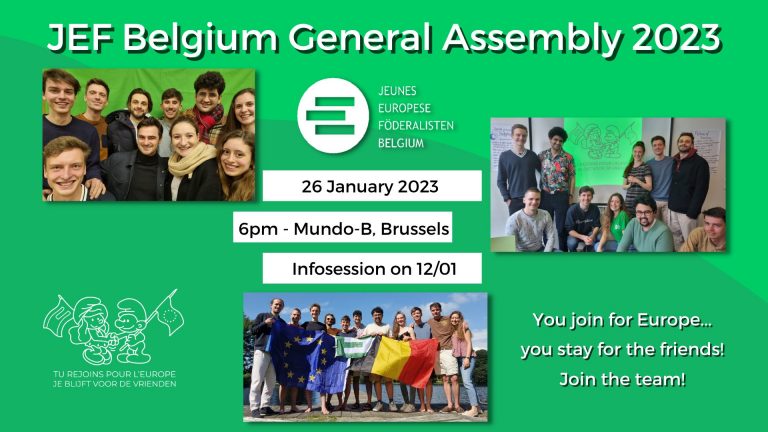A New Chapter Begins: Meet Your JEF Belgium Board 2024-2025!
We are thrilled to announce the newly elected JEF Belgium National Board for the 2024-2025 term! Following our elections in June 2024, a dynamic and dedicated team is ready to lead JEF Belgium into an exciting new chapter, advocating for a more united and democratic Europe.
We are incredibly excited to see what this talented group will achieve together. Stay tuned for updates on our upcoming activities and initiatives!
Meet Your New JEF Belgium Board:
Elected Board Members:
- President: Kalojan Hoffmeister (kalojan.hoffmeister@jefbelgium.eu)
- Secretary-General: Gauthier Joyeaux (gauthier.joyeaux@jefbelgium.eu)
- Treasurer: Thomas de Cuyper (thomas.decuyper@jefbelgium.eu)
- Policy Officer: Veronica Micallef (veronica.micallef@jefbelgium.eu)
- International Officer: Gergely Kozár (gergely.kozar@jefbelgium.eu)
- International Officer: Jashim Konnengal (jashim.konnengal@jefbelgium.eu)
- Social Media: Nathan Doude (nathan.doude@jefbelgium.eu)
- Board Member: Benjamin Reuland (benjamin.reuland@jefbelgium.eu)
Co-opted Board Members:
- Board Member: Daniel Schäfer (daniel.schafer@jefbelgium.eu)
- Board Member: Alejandro Cordero Rodríguez (alejandro.cordero@jefbelgium.eu)
We look forward to a productive and impactful year ahead!




